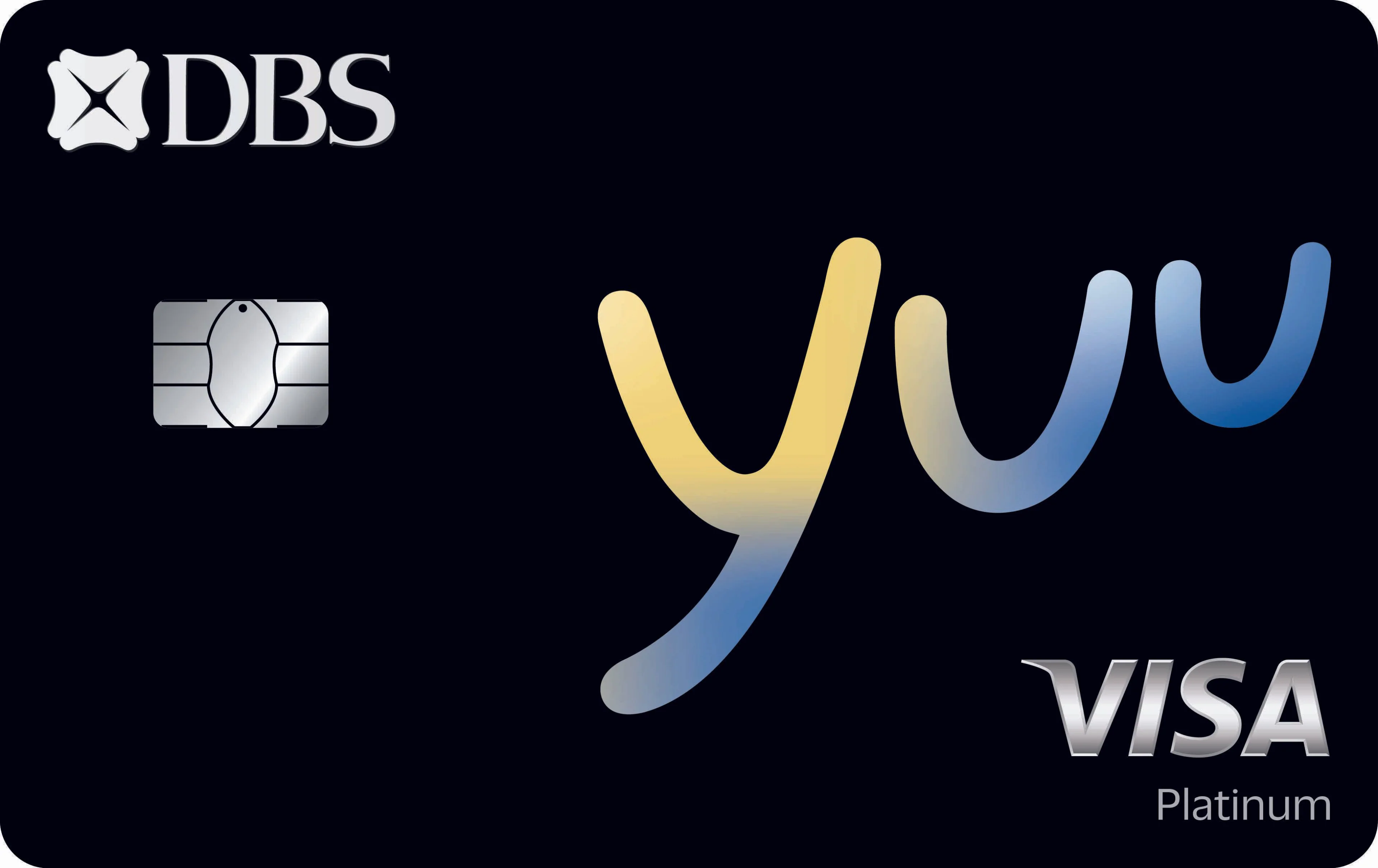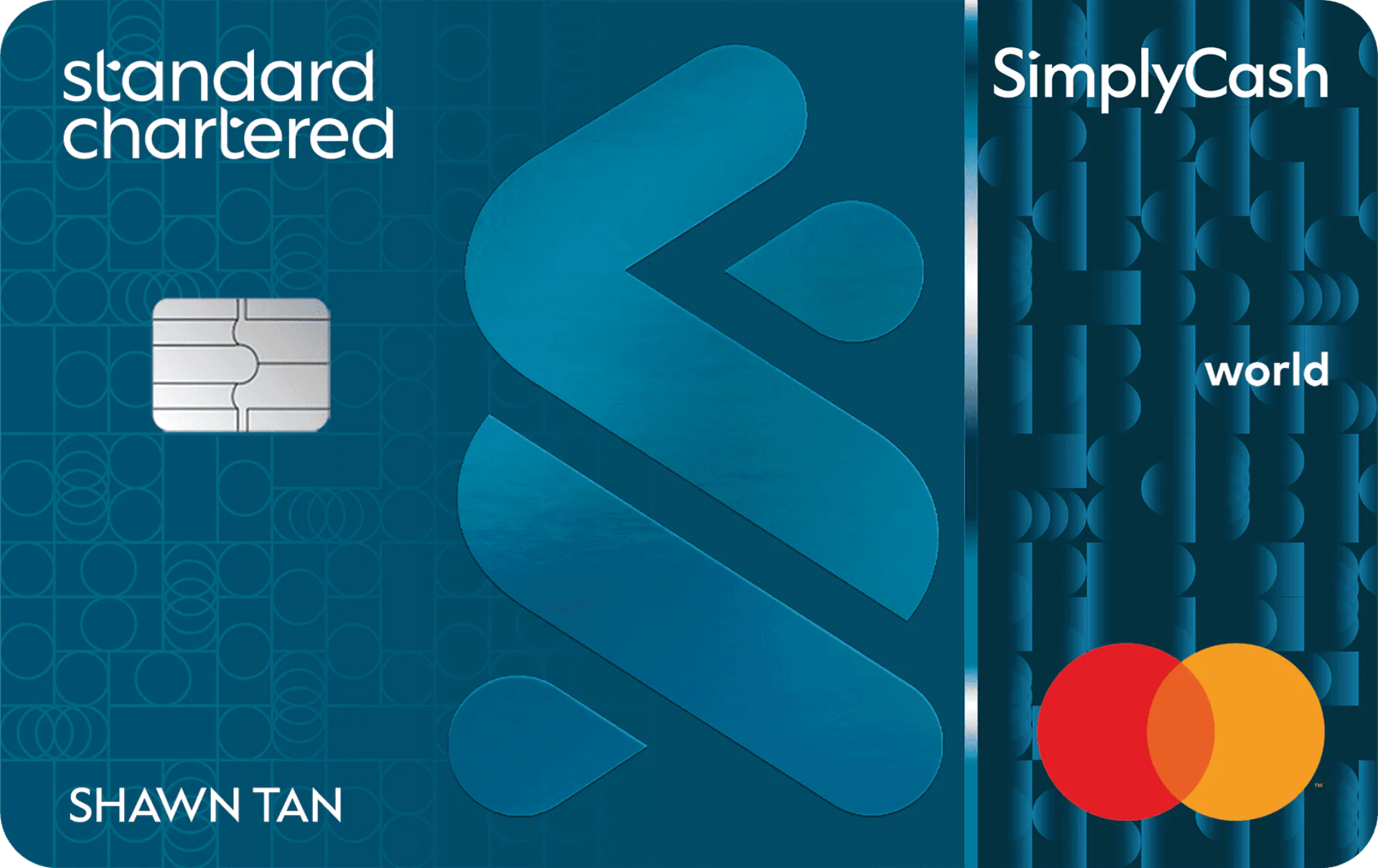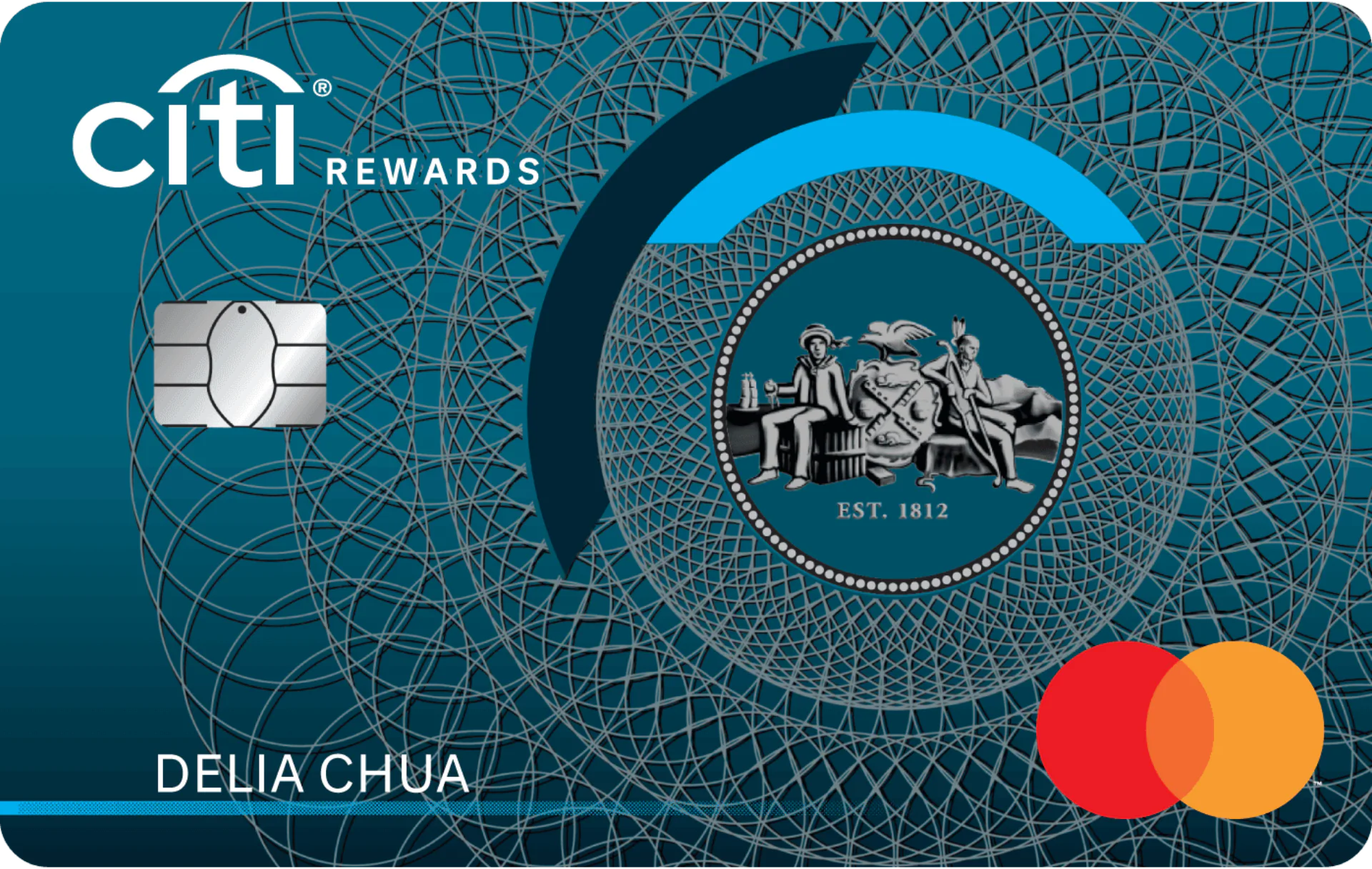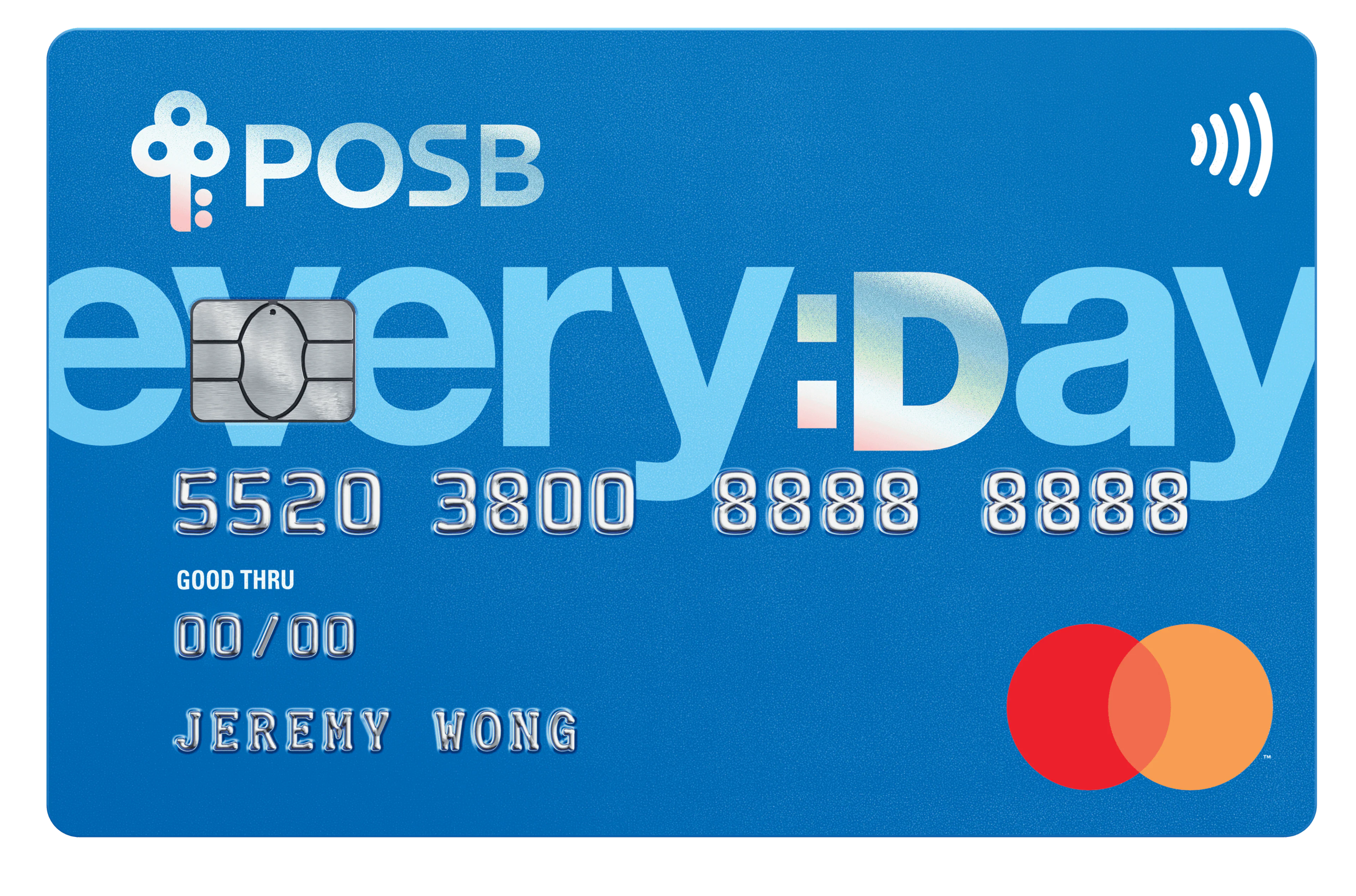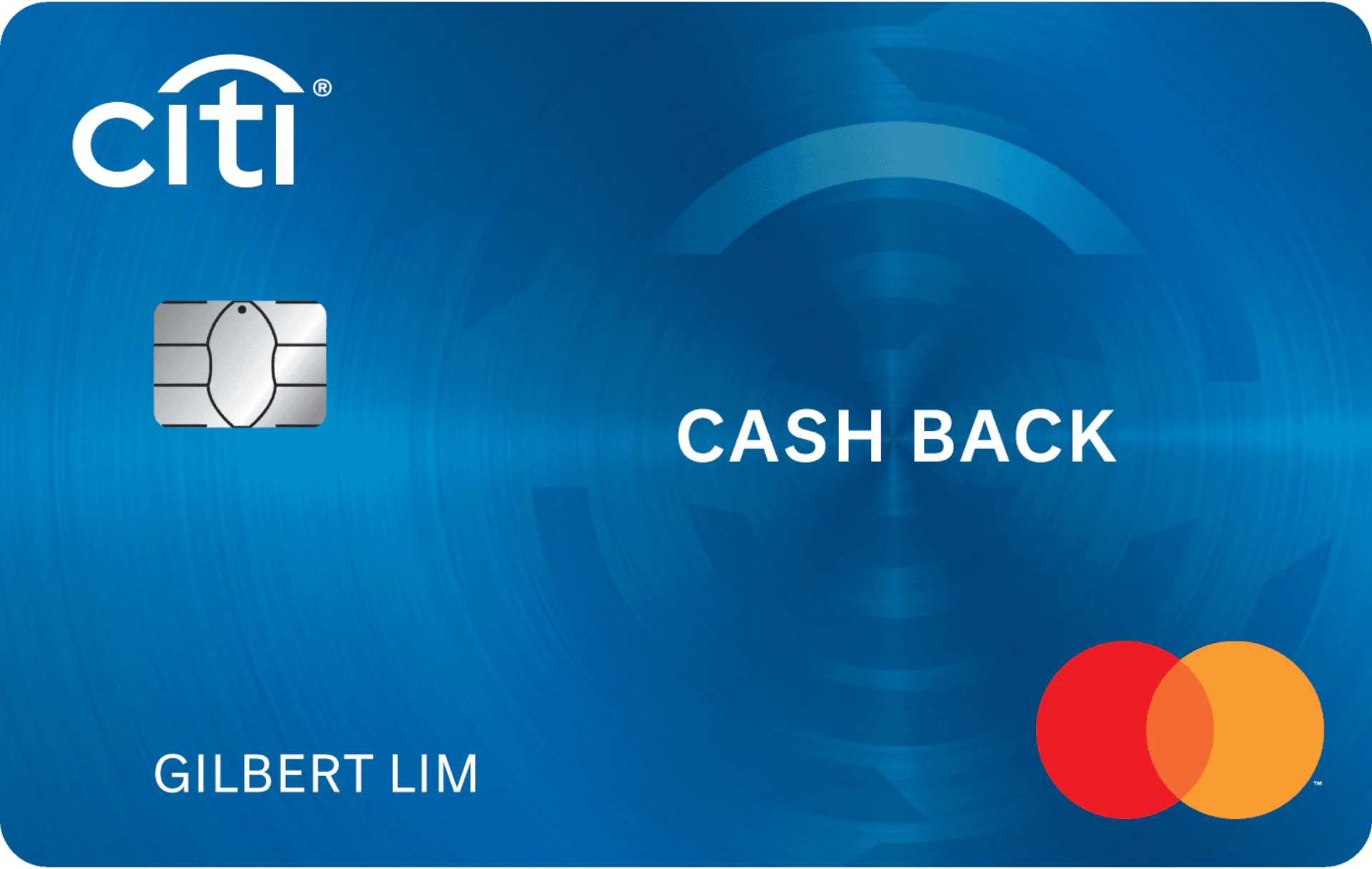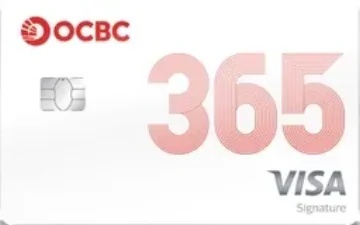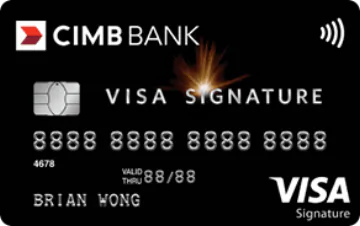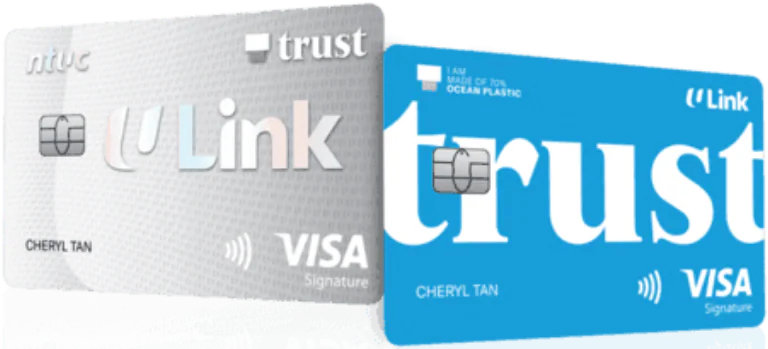Best Credit Cards for Groceries in Singapore 2026
Updated: 20 Jan 2026
DBS yuu Visa Card
Promo Code:
SINGSAVER
- Up to 36X yuu Points (equivalent to 18% cashback) on yuu participating merchants.
- 1X yuu Point on all other spend.
- S$1 spend = 1 yuu Point. No limit. No cap.
- Supermarket rebate
- Dining rebate
- Transport rebate
- Customers need to download the new rewards app as yuu Points awarded can only be tracked on yuu Rewards app.
- Redemptions of yuu Points capped at 15,600 points (S$78) per calendar month.
- Rebate cap applied
- Monthly spend required
- 1.5% unlimited cashback rate with no min. spend.
- Enjoy offers and privileges for online, dining, retail and more with The Good Life®.
- First year annual fee waiver.
- 1.5% unlimited cashback
- No rebate cap
- No monthly spend required
- First year annual Fee waiver
- Cannot be used for EZ-Reload.
Citi Rewards Card
- 10X rewards points for all online purchases except mobile wallet and travel-related transactions.
- 10X rewards points for in-store shopping purchases at department stores, clothing stores and more.
- 1X rewards points on all other purchases.
- Pair with amaze card to turn offline transactions into online transactions.
- No cap on base rewards points.
- Rewards points conversion rate: 440 Points = S$1
- Rewards points are rounded down to the nearest 10 points on all purchases.
- Use Citi PayAll to earn ThankYou PointSM when you pay your bills with your Citi Rewards Card.
- Up to S$1 million travel insurance coverage when you charge your travel tickets to this card. There will be a revision made to the Citi Credit Cards complimentary travel insurance. The Travel Insurance coverage in respect of a Trip charged to Citi Rewards Card will be updated to end on 31 March 2026. For more information, please click here.
- Read our full review of the Citi Rewards Card
- Bonus air miles
- Travel insurance
- Annual Fee waiver
- High-value gift
- Bonus rewards points capped at 9,000 points per statement month.
- Can no longer convert Citi ThankYou Points into miles (as of February 2026).
- Up to 10% cash rebates on food delivery via foodpanda, GrabFood and Deliveroo.
- Up to 10% cash rebates on in-store spend in Malaysian Ringgit (MYR).
- Up to 10% cash rebates on SimplyGo.
- Up to 5% cash rebates on Amazon.sg, Lazada, Shopee, RedMart, Taobao and TikTok Shop.
- Up to 5% cash rebates at Popular bookstores (in-person and online)
- 5% cash rebates at Sheng Siong supermarkets.
- 6% cash rebates at SPC.
- 3% cash rebates at Pet Lovers Centre.
- 0.3% cash rebates on all other eligible spend.
- Cash rebates (in Daily$) never expire.
- Read our full review of the POSB Everyday Card.
- Food delivery
- Online shopping rebate
- Min. spend of S$800 per calendar month required for accelerated cash rebate earn rate.
- S$20 monthly cash rebate cap for dining, Sheng Shiong, Popular, online shopping, SimplyGo, and MYR categories respectively.
- Rebate cap applied
- Monthly spend required
Citi Cash Back Card
- 6% cashback on dining and grocery spending (local & overseas).
- 8% cashback on petrol and private commute (local & overseas).
- Up to 23.64% savings at Caltex, Esso and Shell, inclusive of 8% cashback for petrol spending.
- With Citi PayAll you can earn Citi Miles, Citi ThankYou PointsSM or Cash Back when you pay your bills with your Citi Credit Card.
- Up to S$1 million travel insurance coverage when you charge your travel tickets to this card. There will be a revision made to the Citi Credit Cards complimentary travel insurance. The Travel Insurance coverage in respect of a Trip charged to Citi Cash Back Card will be updated to end on 31 March 2026. For more information, please click here.
- 0.20% cashback for all other spending, even if you do not meet the min. monthly spend.
- Dining rebate
- Supermarket rebate
- High-value gift
- Min. monthly spend of S$800 required to earn bonus cashback.
- S$80 combined cashback cap across all categories.
- Rebate cap applied
- 6% cashback on fuel spend at all other petrol stations.
- 5% cash rebate on dining spends all day, everyday (includes local/overseas dining and online food delivery).
- 3% cashback on drugstore purchases, streaming service subscriptions and EV charging expenses.
- 3% cashback on groceries at supermarkets (both local and overseas) and online groceries.
- 3% cashback on private hire (Grab/Gojek) and taxi rides (both local and overseas).
- 3% cashback on recurring telco and electricity bills.
- S$160 monthly cashback cap (up from S$80).
- Up to 22.92% fuel savings at Caltex (incl. 18% instant discount for all fuel) and 6% cashback on fuel spend at all other petrol stations.
- 2-year annual fee waiver.
- Earn up to 4.65% p.a. interest on first S$100,000 of OCBC 365 Account balance.
- Great for homemakers, working adults, cashback lovers, enjoy flexibility over min. spend (S$800 or S$1,600), drive frequently
- Read our full review of the OCBC 365 Credit Card .
- Petrol rebate
- Dining rebate
- High min. spend of either S$800 or S$1,600 per calendar month
- Min. annual spend of S$10,000 from date of issue to qualify for automatic annual fee waiver.
- S$80 monthly cashback cap with minium spend of $800.
- S$160 monthly cashback cap with mininum spend of $1,600.
- Operates on a whitelist basis. Only selected MCCs shown in the T&Cs qualify for bonus cashback.
- Interest on outstanding balance increased from 26.88% p.a. to 27.78% p.a.
- Monthly spend required
CIMB Visa Signature Card
- 10% cashback on online shopping, groceries, beauty/wellness, pet shops/veterinary services and cruises.
- Unlimited 0.2% cashback on all other spend.
- Complimentary travel insurance of up to S$500,000 when you charge your travel fares to this card.
- No annual fees for life + up to 4 supplementary cards with no annual fees.
- Online shopping rebate
- Supermarket rebate
- Annual Fee waiver
- Minimum spending of S$800 in the statement month to qualify for 10% cashback.
- 10% cashback is capped at S$100 per statement month per principal cardmember and up to S$20 per category. Earn 0.2% cashback on all spend when you exceed the cashback cap.
- Rebate cap applied
- Enjoy up to 21% savings on groceries and food at FairPrice Group when you spend on credit card.
- Enjoy up to 20% savings on fuel purchase at Caltex when you spend on credit card.
- Enjoy 0% foreign transaction fees
- No annual fees.
- No card replacement fee.
- Cashback provided in Linkpoints.
A snapshot-look at the best credit cards for groceries
Do be sure to confirm details on the issuer’s website before applying.
DBS yuu Visa Card
Our pick for Cold Storage
The DBS yuu Visa card offers a tiered rewards system where spending more unlocks greater benefits. It's particularly advantageous for frequent shoppers at participating merchants, offering a compelling points-based system that can be redeemed for a variety of rewards. The card's versatility makes it a good choice for everyday spending, not just groceries. Read our review.
UOB One Card
Our pick for online grocers
The UOB One Card caters to those who can consistently meet its spending requirements. The tiered cashback system offers increasing rewards for higher spending, making it suitable for larger households or individuals with significant monthly expenses. The bonus categories, including online groceries, further enhance its value proposition. Read our review.
Citi Cash Back Card
Our pick for FairPrice
The Citi Cash Back Card is a straightforward option for those who prioritise cashback on common expenses. Its high cashback rates on groceries, dining, and petrol make it a practical choice for everyday use. While the cashback cap is a factor to consider, the card's overall simplicity and focus on essential spending make it appealing. Read our review.
POSB Everyday Card
Our pick for Sheng Siong
The POSB Everyday Card is a versatile card that caters to a wide range of spending needs. Its diverse cashback categories and flexible rewards program make it a good all-around option. The card's accessibility, with no minimum spend required at select merchants, makes it suitable for various spending habits. Read our review.
CIMB Visa Signature Card
Our pick for general supermarkets
The CIMB Visa Signature Card is a good choice for those whose spending aligns with its bonus categories, particularly online shopping and lifestyle expenses. The absence of an annual fee adds to its appeal, making it a cost-effective option. However, the limited range of bonus categories means it's best suited for specific spending habits. Read our review.
DBS yuu American Express Card
Our pick for Giant
The DBS yuu American Express card, like its Visa counterpart, excels in rewarding spending within the yuu Rewards Club. The added travel perks make it a potentially stronger choice for those who travel frequently. However, the core benefits and limitations are largely similar to the Visa version, focusing on participating merchants. Read our review.
NTUC Link Credit Card by Trust Bank
Our pick for NTUC FairPrice Group
The NTUC Link Credit Card by Trust Bank is a strong contender for NTUC Union Members who frequently shop at FairPrice. The high savings rate on groceries and petrol, coupled with no annual fees, makes it a valuable tool for maximsing everyday savings. However, the rewards being in Linkpoints might not appeal to everyone. Read our review.
Maybank Family & Friends Card
Our pick for household spending
The Maybank Family & Friends Card offers a customisable approach to cashback rewards. The ability to choose bonus categories allows cardholders to tailor the card to their specific spending habits. While the category caps require some planning, the potential rewards are substantial for those who manage their spending effectively. Read our review.
HSBC Visa Platinum Credit Card
Our pick for RedMart and other online grocers
The HSBC Visa Platinum Credit Card is a solid choice for families seeking a straightforward cashback card focused on essential spending. The 5% cashback on dining, groceries, and fuel, combined with the HSBC Everyday+ Rewards program, offers significant savings potential. However, the spending requirement and quarterly cashback payout might not suit everyone. Read our review.
Other options worth considering
Flat-rate cashback cards
For those who prefer a single, uncomplicated card, flat-rate cashback cards offer a straightforward approach to earning rewards.
These cards provide a consistent cashback percentage on all purchases, including groceries, eliminating the need to track bonus categories or spending tiers. This simplicity makes them a good choice for individuals who value ease of use and predictable rewards.
-
Citi Cash Back+ Card (1.6% unlimited cashback on all spending)
-
AMEX True Cashback Card (1.5% unlimited cashback on all spending)
-
Standard Chartered Simply Cash Card (1.5% unlimited cashback on all spending)
-
UOB Absolute Cashback Card (1.7% unlimited cashback on all spending)
-
Maybank FC Barcelona Visa Signature Card (1.6% unlimited cashback on all local spending)
Brand-specific credit cards
If you consistently shop at a particular supermarket chain, a brand-specific credit card can be a valuable asset. These cards often offer enhanced rewards and discounts specifically at their affiliated stores, allowing loyal customers to maximise their savings.
While some branded cards offer modest benefits, others provide significant perks, making them a worthwhile consideration for dedicated shoppers.
-
Citi SMRT Card (Up to 5% cashback at Giant)
-
DCS Sheng Siong Card (Up to 5% cashback at Sheng Siong)
-
DCS DON DON DONKI Card (Up to 5% cashback at DON DON DONKI)
No-minimum-spend cards
For those who prefer a more relaxed approach to credit card rewards, no-minimum-spend cards offer the convenience of earning cashback or points without the pressure of hitting specific spending targets. These cards are ideal for individuals with variable spending habits or those who simply prefer not to be tied to a minimum spend requirement. While the rewards rates may not be as high as some cards with spending thresholds, the flexibility and ease of use make them a great option for casual card users.
-
Citi PremierMiles Card (1.2 - 10 miles per dollar)
-
UOB PRVI Miles Visa Card (1 - 8 miles per dollar)
-
Maybank World Mastercard (0.4 - 4 miles per dollar)
-
HSBC Revolution Credit Card (0.25 - 2.5% cashback)
-
Standard Chartered Smart Credit Card (0.5 - 6% cashback)
-
American Express True Cashback Card (1.5 - 3% cashback)
